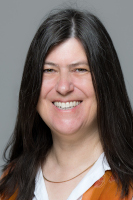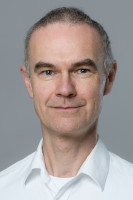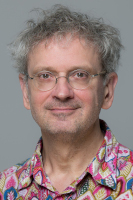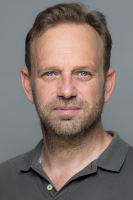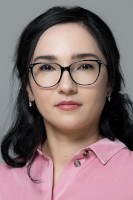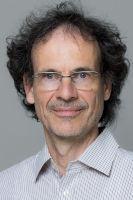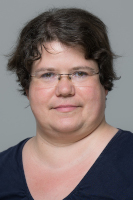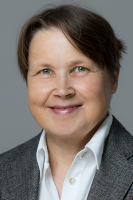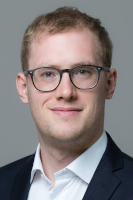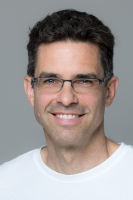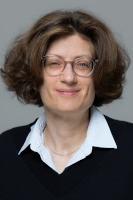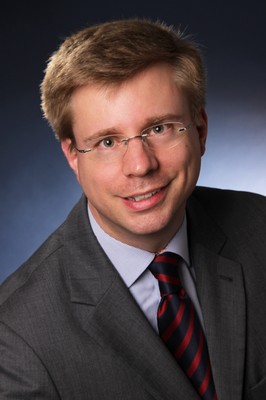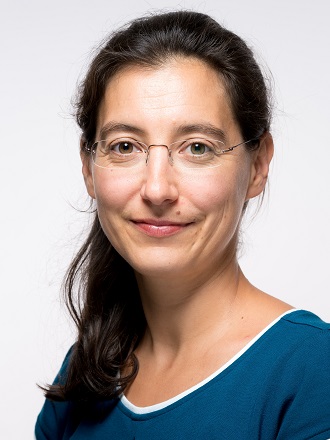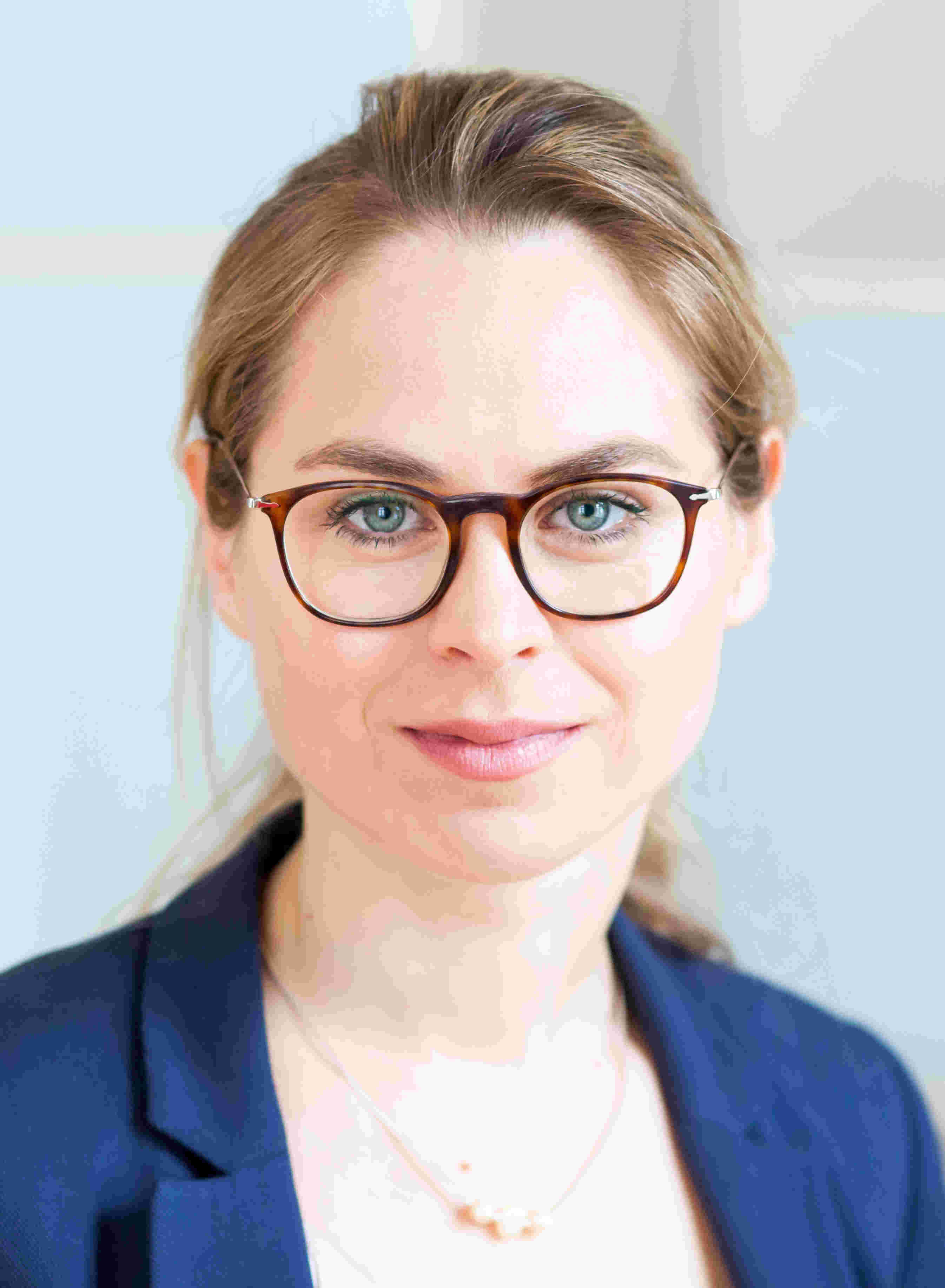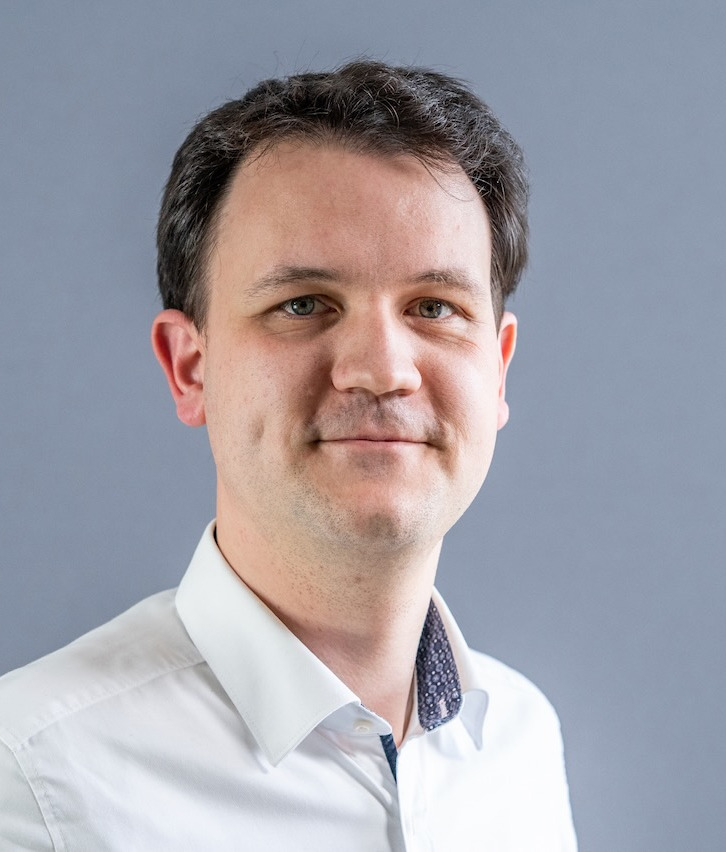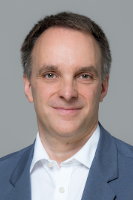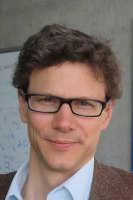Last edited by Peter Pfaffelhuber on 20/07/2025 at 22:27:54.
This focus area deals with number fields and their generalizations, with the particular aim of gaining insights into the solvability of equations. Due to the wide range of interests covered by this focus area, a variety of study paths are possible. The specific structure of your studies can be discussed at any time with one of the lecturers in this focus area.
In addition to proseminars and seminars, the focus area offers the following lectures:
- Algebra and Number Theory (in the winter semester)
- Commutative Algebra and Introduction to Algebraic Geometry (in the summer semester)
- Various advanced lectures, e.g., Algebraic Number Theory (every two years in the summer semester), Representation Theory, Algebraic Geometry (offered irregularly)
In addition, there are courses that also belong to the geometry major:
- Function theory (winter semester), Topology (every two years in the summer semester), Differential geometry (winter semester)
- Function theory II (e.g., Riemann surfaces, modular forms), Algebraic topology, Differential topology (offered irregularly)
As a rule, it is advisable to take the courses in the following order:
Bachelor
- Algebra and Number Theory
- Commutative Algebra and Introduction to Algebraic Geometry
- Seminar
Master
- Advanced lecture in algebra (one or more)
- Seminar(s)
- In addition to advancing your knowledge, you should also expand your foundation, e.g., by taking Algebra and Number Theory , Commutative Algebra , Function Theory , or Topology .
The lecture Commutative Algebra can also be taken without Algebra and Number Theory. The advanced lectures usually build on Algebra and Number Theory and/or Commutative Algebra. Supplementary knowledge can be acquired through guided self-study ( Scientific Work ).
Prerequisites
- for a bachelor's thesis: usually two courses (lectures, proseminar, seminars) from the area of specialization.
- for a master's thesis: additionally two to three courses from the area of specialization.
Last edited by Peter Pfaffelhuber on 18/06/2025 at 12:36:08.
This focus area also covers the study of multi-valued functions and solutions to differential equations. Specialization in the field of Analysis usually includes the following courses. Alternative study plans should be discussed with one of the lecturers in the focus area.
Bachelor's degree:
- 3rd semester: Analysis III
- 4th semester: Functional Analysis
- 5th and 6th semesters: one or two advanced lectures in analysis, such as Introduction to Partial Differential Equations , Partial Differential Equations , Variational Calculus (all offered irregularly)
- 6th semester: Seminar and bachelor's thesis
Master's:
(if starting in the winter semester; otherwise corresponding changes)
- 7th and 8th semesters: advanced lectures in analysis such as Geometric Analysis , Geometric Measure Theory , Partial Differential Equations II (all offered irregularly)
- 8th and 9th semesters: one seminar each
- 10th semester: Master's thesis
Useful additions to the Bachelor's and Master's programs are the lectures Curves and Surfaces (every two years in the summer semester), Differential Geometry and Function Theory (both in the winter semester).
Last edited by Peter Pfaffelhuber on 18/06/2025 at 12:36:46.
In this focus area, methods for the systematic, computational solution of mathematical problems are designed. A specialization in the field of Applied Analysis / Numerics usually includes the following courses. Alternative study programs should be discussed with the academic advisor of the Department of Applied Mathematics or one of the lecturers in the focus area.
Bachelor
- 3rd semester: Analysis III , Numerical Methods I
- 4th semester: Functional Analysis , Numerical Methods II , Numerical Methods for Differential Equations
- 5th semester: Introduction to the Theory and Numerical Methods of Partial Differential Equations
- 6th semester: Seminar and bachelor's thesis
Master's:
(if starting in the winter semester; otherwise, corresponding changes)
- 7th and 8th semesters: advanced lectures such as Theory and Numerics for Partial Differential Equations – ... , Nonlinear Functional Analysis (all offered irregularly)
- 9th semester: Special lecture or Scientific Work ; seminar from the area of specialization
- 10th semester: Master's thesis
For the numerically oriented lectures, participation in the practical exercises offered is recommended. Students who are more interested in theory are advised to take additional lectures on the theory of partial differential equations in the 7th–9th semesters.
Last edited by Markus Junker on 15/07/2025 at 15:27:47.
For example, it investigates the curvature properties of curves and surfaces and their higher-dimensional generalizations. A specialization in geometry and topology usually includes the following courses. Alternative study programs should be discussed with one of the lecturers in the focus area.
Bachelor
- 4th semester: Topology or Curves and Surfaces or _ Functional Analysis_
- 5th semester: depending on the offer Differential Geometry, Algebraic Topology
- 6th semester: Topology or Functional Analysis (if not taken in the 4th semester)
- 5th/6th semester: Seminar and bachelor's thesis
Master's:
(if starting in the winter semester; otherwise corresponding changes)
- 7th–9th semester: one or two advanced lectures from the focus area, e.g., Differential Geometry II (in one of its various forms), Differential Topology , Algebraic Topology (all offered irregularly). As an alternative to a lecture: in the 9th semester, a reading course.
- 8th–9th semester: one or two seminars from the area of specialization
- 9th–10th semester: Master's thesis
Depending on your interests, useful additions to the Bachelor's and Master's programs include: Function Theory (winter semester), lectures on analysis, lectures on algebraic geometry and Lie groups, lectures on mathematical physics.
Last edited by Peter Pfaffelhuber on 18/06/2025 at 12:37:59.
Mathematical logic formulates, among other things, the axiomatic laws of mathematics and examines the provability of mathematical statements. Specialization in the field of mathematical logic usually includes the following courses. Alternative study programs should be discussed with the academic advisor of the Department of Mathematical Logic or one of the lecturers in the specialization area.
Bachelor
- 4th semester: Mathematical Logic
- 5th Semester: (depending on availability) Set Theory or Model Theory
- 6th semester: Seminar and bachelor's thesis
The lecture Mathematical Logic, which is offered regularly in the summer semester, is the minimum requirement for a bachelor's thesis; a seminar and/or an additional lecture in the field of mathematical logic is desirable.
As a rule, the lectures Set Theory and Model Theory alternate in the winter semester; sometimes both are held. In the summer semester, there are sometimes follow-up lectures.
Master's:
(if starting in the winter semester; otherwise corresponding changes)
- 7th and 8th semesters: If not already taken in the bachelor's program: Set Theory and/or Model Theory and, if offered, advanced lectures in mathematical logic, otherwise reading courses. Supplementary: advanced lectures in pure mathematics, e.g., Commutative Algebra, Topology, Algebraic Number Theory
- 9th semester: Scientific Work (reading course), seminar in the area of specialization
- 10th semester: Master's thesis
Useful additions are applications, for example advanced algebra, algebraic geometry, set-theoretical topology.
Last edited by Peter Pfaffelhuber on 18/06/2025 at 12:38:33.
Stochastics models random events and develops methods for optimally dealing with randomness or large amounts of data. A specialization in Mathematical Stochastics and Financial Mathematics usually includes the following courses. Alternative study paths are best discussed with the academic advisor of the Department of Mathematical Stochastics or one of the lecturers in the specialization area.
Bachelor's degree:
- 3rd semester: Stochastics I , Analysis III
- 4th semester: Probability Theory Useful additions are Stochastics II and the Practical Exercise in Stochastics .
- 5th semester: Probability Theory II (formerly: Stochastic Processes ) or Probabilistic Machine Learning
- 6th semester: Seminar and bachelor's thesis
The measure theory taught in the Analysis III lecture is a prerequisite for understanding the advanced stochastics lectures (except Probabilistic Machine Learning) starting with Probability Theory. Measure theory is usually briefly reviewed in the Probability Theory lecture.
Master's:
(if starting in the winter semester; otherwise, corresponding changes)
- 7th semester: If offered: Mathematical Statistics or Probability Theory II, if not already taken in the bachelor's program
- 8th semester: Probability Theory III (formerly: Stochastic Integration and Financial Mathematics or Stochastic Analysis )
- 9th semester: Scientific Work (reading course), seminar from the area of specialization
- 10th semester: Master's thesis
Last edited by Peter Pfaffelhuber on 23/07/2025 at 12:25:15.
Die Mathematikdidaktik beschäftigt sich mit dem Lernen und Lehren von Mathematik. Erkenntnisse werden aus der Verbindung von empirischer Forschung, schulpraktischer Erfahrung und Theorie gewonnen. Die Studieninhalte der Mathematikdidaktik bereiten auf den Lehrberuf und auf die Forschung im Rahmen einer Masterarbeit vor. Die Mathematikdidaktik hat mehrere Bezugsdisziplinen, u.a. die Bildungswissenschaften und besonders die Mathematik selbst. Deswegen wird die Einführung in die Mathematikdidaktik idealerweise für das 5. Semester, frühestens ab dem 3. Semester, empfohlen.
Zwei-Hauptfach-Bachelor:
- Einführung in die Mathematikdidaktik
Master of Education:
- Didaktik der Funktionen und Analysis
- Didaktik der Algebra und Stochastik
- Wer keine Masterarbeit in Mathematikdidaktik schreiben möchte, besucht das Seminar zur Fachdidaktischen Entwicklung (wechselnde Themen je nach DozentIn).
- Wer seine Masterarbeit in Mathematikdidaktik schreiben möchte, besucht vorher die Veranstaltungen zur Fachdidaktischen Forschung an der PH Freiburg. (Achtung: Frühzeitig planen, da auch noch das Praxissemester zu absolvieren ist).
NEU: Vernetzung zwischen Fachwissenschaft und Fachdidaktik: Als Mathematische Ergänzung kann ab WS25 die Veranstaltung Schulmathematische Aspekte der Analysis und Linearen Algebra besucht werden (wird nur im Wintersemester angeboten).
Last edited by Peter Pfaffelhuber on 23/07/2025 at 12:23:40.
Medizinische Statistik
Wer gute Kenntnisse in Wahrscheinlichkeitstheorie und Mathematischer Statistik mitbringt, kann das Seminar Medical Data Science belegen, das jedes Semester angeboten wird. Hier geht es um die aktuelle Methodenforschung zur Analyse und Modellierung von Daten aus der biomedizinischen Forschung, v.a. um Deep Learning- oder allgemeiner Machine Learning-Techniken, wie z.B. auch Large Language Models (LLMs). Dabei spielt die Verknüpfung von Methoden der Statistik mit Methoden der Informatik, inkl. der mathematischen Grundlagen, eine wesentliche Rolle.
Aufbauend auf diesem Seminar können Bachelor- und Master-Arbeiten vergeben werden.
Optimierung
Folgende Vorlesungen der Technischen Fakultät werden im Rahmen der Mathematik-Studiengänge angeboten:
- Numerical Optimization (SoSe): Es werden Optimierungsprobleme in Wissenschaft und Technik besprochen. Der Fokus liegt auf stetigen, nicht-linearen Optimierungsproblemen in endlich-dimensionalen Räumen, die entweder Konvex oder nicht-konvex sind.
- Numerical Optimal Control (WS): Der Schwerpunkt liegt sowohl auf zeitdiskreter als auch auf zeitkontinuierlicher optimaler Steuerung in kontinuierlichen Zustandsräumen.
Aufbauend auf diesen beiden Vorlesungen können Bachelor- und Master-Arbeiten vergeben werden.
